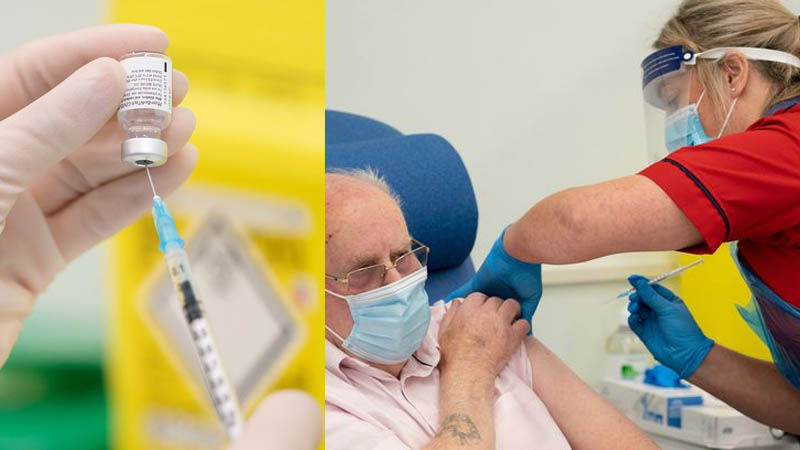GP surgeries procedures will be paid a £10 reward for each Covid-19 vaccine doctors provide for a consideration home resident one month from now. The plan is pointed toward boosting the rollout of inoculation to the most powerless and comes after the Oxford/AstraZeneca hit was given the support of regulators.
According to Mirror, “Yesterday that care homes were still waiting for deliveries of the Pfizer jab due to problems keeping it at the necessary temperature of -70C.
Here is the plan which Health Secretary Matt Hancock just reveal.
What is the plan for rolling out the Oxford vaccine?
An initial 530,000 doses will be available from Monday. AstraZeneca has previously promised four million doses this year so these are likely to be available in the next few weeks.
From Monday the Oxford jab will be given along with the Pfizer version at 83 hospitals and 600 clinics. They will also be sent into care homes and within days be administered to the elderly, unwell and care workers.
Why is there now a longer delay been doses?
Trial data suggested a half dose followed by a full dose was 90% effective compared to the 62% provided by two full doses. Health authorities requested more detail and decided that the 90% group fared better because the doses were also given further apart. So they have now approved two full doses at an interval of up to three months.
Can we be sure it is safe after such a quick turnaround?
British regulators have been studying clinical trial data since September. The US and EU are only now starting to analyse results. The UK is set to become the first major country protected by vaccination.
How effective is it?
Regulators say a single full dose is 70% effective after three weeks and lasts up to three months. A second full dose then ups effectiveness to 80% and provides lasting protection.
What about the Pfizer vaccine?
Until now two doses had to be given within 21 days. But now regulators have allowed the second dose to be delayed. Pfizer says this needs to be monitored as their trial data does not show immunity after just one dose lasts longer than 21 days.
Would I be better off with Pfizer?
Trials concluded it was 95% effective. However, experts insist results between different vaccines should not be compared as they were done under different circumstances.
Vaccines are usually approved if they are shown to be safe and more than 50% effective. Even though a small number of vaccinated participants got Covid, both vaccines prevented severe symptoms.
How do they decide who gets the vaccine?
The NHS will decide who gets offered which jab based on what is logistically best to get the most people vaccinated. Care home
residents are likely to get the Oxford vaccine whereas those being vaccinated at hospitals – where they have ultra-cold storage – may get the Pfizer jab.
Can I choose which I get?
No. This will be a clinical decision based on the advice of the Government’s Joint Committee on Vaccination and Immunisation. Both vaccines are suitable for all priority groups.
Can everyone get it?
The Oxford jab is approved for everyone over 17. Previous precautionary advice for pregnant women to avoid vaccinations was amended so that it can be given to those who are at particular risk from Covid. People with allergies can now receive a vaccination unless they are allergic to any of its ingredients.
Who gets it first?
Age is the biggest factor. There are around 20 million people deemed vulnerable including all over-50s. The Joint Committee on Vaccination and Immunisation and the chief medical officers in England, Wales, Scotland and Northern Ireland decide on priority. It starts with elderly care home residents in the first group, followed by all over-80s as well as health and social care workers in the second. It then drops down by five-year age groups. However, those with underlying health conditions are higher in the priority ranking.
Why aren’t healthcare workers top of the list?
Age is by far the biggest risk factor for Covid death so the very elderly will be vaccinated first to prevent them ending up filling up beds in overstretched hospitals.



